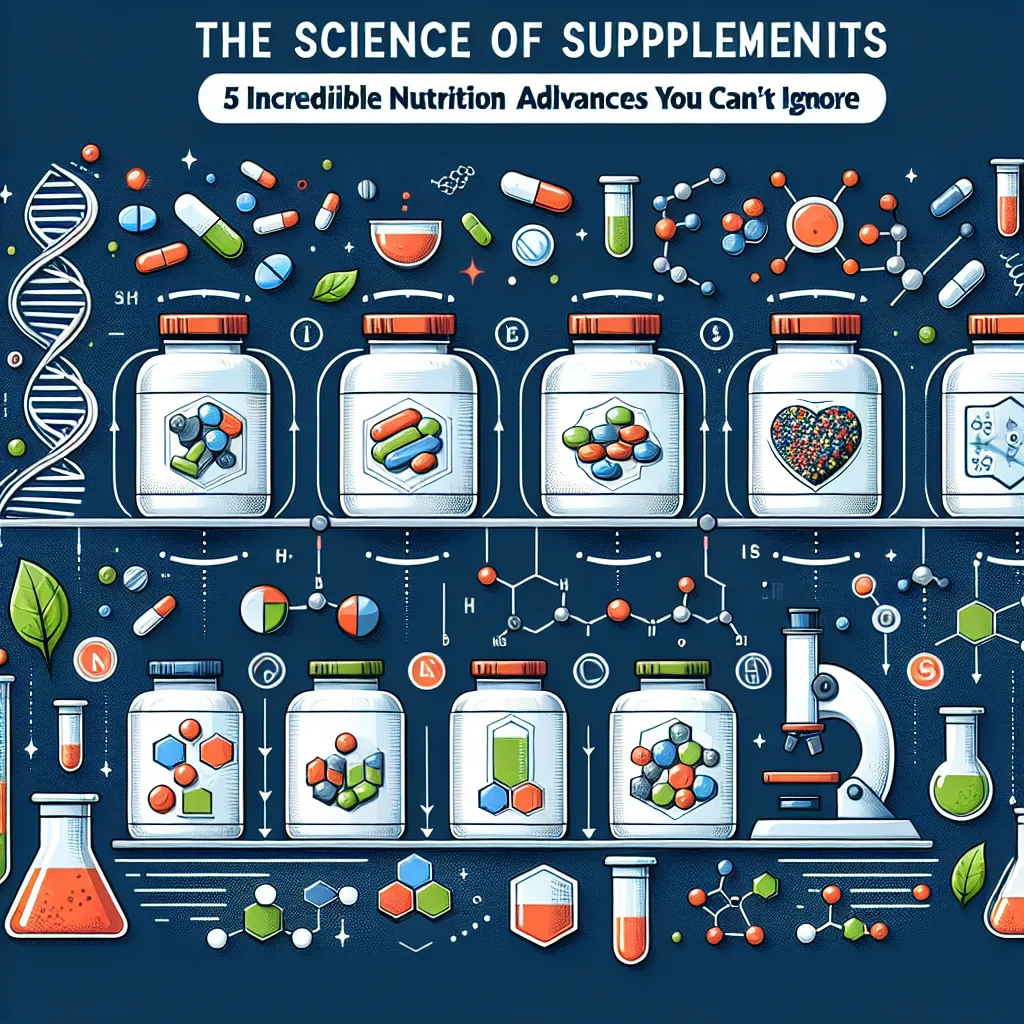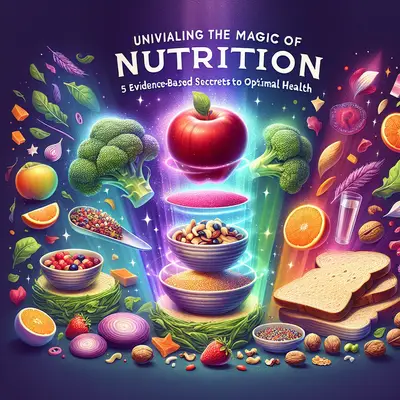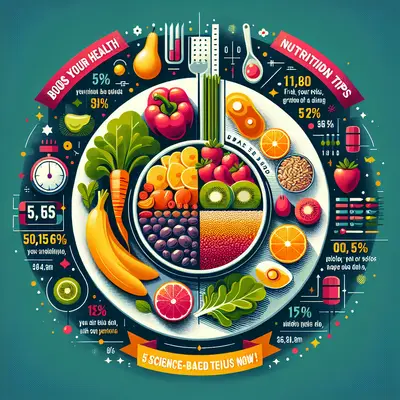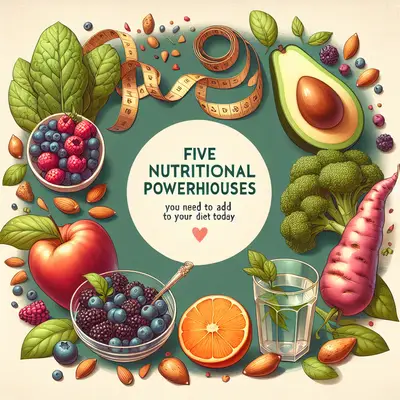The world of nutrition is a fascinating realm, continually evolving with new discoveries and innovations. As we delve into the future, let's explore five recent advancements that are reshaping the way we approach nutrition and wellness.
1. Personalized Nutrition
A significant trend in today's nutrition landscape is the shift towards personalized nutrition. This approach revolves around the concept that each person has unique dietary needs based on their genetics, lifestyle, and health status[^1^]. The rise of DNA testing services offers a more personalized dietary plan, giving individuals the opportunity to understand their nutritional needs better and make informed decisions about their diet and supplement intake[^2^].
2. Plant-Based Probiotics
The importance of gut health is receiving more attention in the scientific community, and for a good reason. A healthy gut microbiome is essential for optimal digestion and overall health[^3^]. The latest advancement in this area is plant-based probiotics. Unlike traditional probiotics, which are derived from dairy, plant-based probiotics offer a vegan-friendly alternative and may provide additional health benefits[^4^].
3. Bioavailability Boosters
Bioavailability refers to the proportion of a nutrient that is absorbed and used by the body. Recent research has yielded exciting developments in this area, specifically the discovery of bioavailability boosters. These substances, such as piperine found in black pepper, can enhance the absorption of certain nutrients, maximizing the effectiveness of dietary supplements[^5^].
4. Smart Supplements
In the era of smart devices, we now have smart supplements. These innovative products incorporate time-release technology, ensuring that nutrients are released slowly over time for optimal absorption[^6^]. This technology offers a more efficient way of delivering nutrients to the body, maximizing the benefits of each supplement.
5. Sustainable Supplements
The growing awareness of environmental sustainability has permeated the nutrition industry. More and more companies are focusing on producing supplements that are not only beneficial for our health but also for the planet. This includes using responsibly sourced ingredients, eco-friendly packaging, and investing in renewable energy for production[^7^].
Conclusion
As science continues to advance, we can expect to see more exciting developments in the field of nutrition. By staying informed about these trends, we can make educated decisions about our health and well-being. Remember, it's always important to consult with a healthcare provider before starting any new supplement regimen.
[^1^]: Zeevi D, Korem T, Zmora N, et al. Personalized Nutrition by Prediction of Glycemic Responses. Cell. 2015;163(5):1079-1094. doi:10.1016/j.cell.2015.11.001
[^2^]: Nielsen DE, El-Sohemy A. Disclosure of Genetic Information and Change in Dietary Intake: A Randomized Controlled Trial. PLoS One. 2014;9(11):e112665. Published 2014 Nov 14. doi:10.1371/journal.pone.0112665
[^3^]: Thursby E, Juge N. Introduction to the human gut microbiota. Biochem J. 2017;474(11):1823-1836. doi:10.1042/BCJ20160510
[^4^]: Sugahara H, Odamaki T, Fukuda S, et al. Probiotic Bifidobacterium longum alters gut luminal metabolism through modification of the gut microbial community. Sci Rep. 2015;5:13548. Published 2015 Aug 21. doi:10.1038/srep13548
[^5^]: Srinivasan K. Black pepper and its pungent principle-piperine: a review of diverse physiological effects. Crit Rev Food Sci Nutr. 2007;47(8):735-748. doi:10.1080/10408390601062054
[^6^]: Tønnesen HH, Karlsen J. Alginate in drug delivery systems. Drug Dev Ind Pharm. 2002;28(6):621-630. doi:10.1081/DDC-120003853
[^7^]: Siracusa V, Saija G, Blanco G. Sustainable Packaging Solutions for Fruit and Vegetables. In: Muthu SS, ed. Environmental Footprints of Packaging. Singapore: Springer; 2016:37-68. doi:10.1007/978-981-10-0294-6_2
Key Takeaway
The most important thing to remember from this article is that this information can change how you think about Nutrition.



